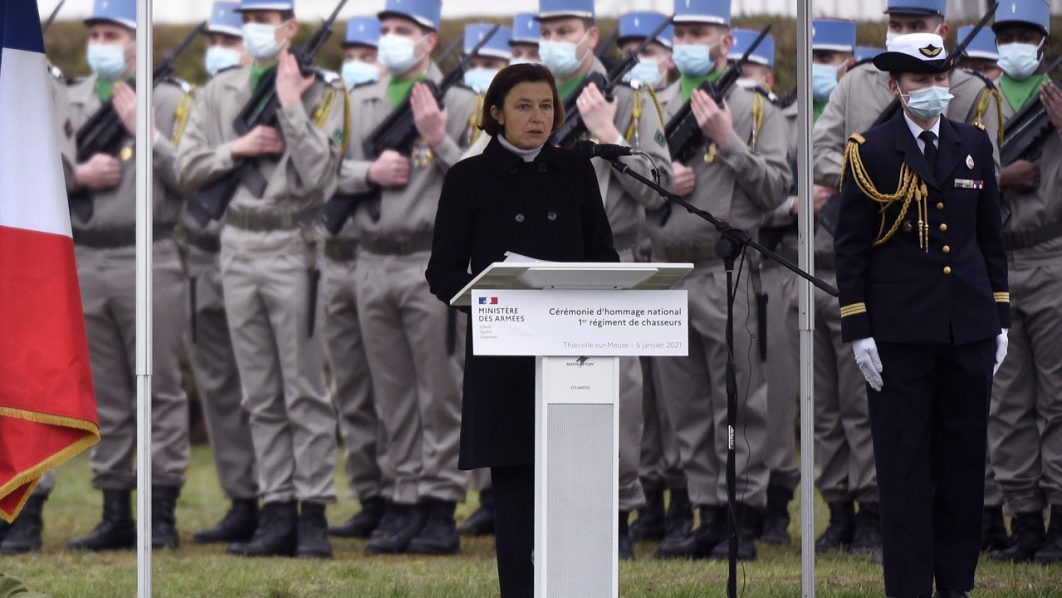
The French military rejects any accusation of a mistake, saying that their operation was a precision raid carried out after extensive surveillance.
Here’s what we know of the events:
– What happened in Bounti? –
Several residents of the remote village of Bounti say a wedding party came under air attack in mid-afternoon on Sunday, sparking panic.
Almost all describe the aircraft as a single unidentified helicopter.
At least one witness says the helicopter released bombs or possibly fired rockets, while others are vaguer.
An association defending the Fulani ethnic group in Mali has published the names of 18 people that it says were killed. A witness has also described mangled bodies that were buried on Monday in a common grave.
Various sources have said that there were many wounded, included women and children, who were taken to neighbouring towns.
– What does France say? –
After the attack, social media began to buzz with speculation about a possible mistake.
Only the Malian armed forces and the French anti-jihadist mission in the Sahel, known as Barkhane, carry out offensive air operations in Mali.
France’s military broke its silence on Tuesday after AFP gathered witness accounts.
Its armed forces headquarters denied any connection with any attack on a wedding.
It said jet fighters had carried out a single attack killing several dozen jihadists in a planned and targeted operation.
The strike was carried out after the group had been monitored for several days, it said.
“There can’t be any doubts or ambiguity, there was no wedding,” a senior military official told AFP separately, adding that the airstrike did not involve a helicopter.
– Were there two incidents? –
The French military account does not mention Bounti specifically.
It says its operation took place “west of Hombori, in the Ferendi region” north of highway 16 — which places the attack in a radius of several kilometres (miles) from Bounti.
It also says the attack took place mid-afternoon, a time that concurs with the testimonies at Bounti.
However, the two versions of events are so starkly different that there has been speculation of two attacks, not one, which happened near each other at about the same time.
That narrative gained strength on Wednesday after the medical charity Doctors Without Borders (MSF), which works extensively in central Mali, issued a statement.
It said two villages — Bounti and Kikara, which are 15 kilometres (nine miles) apart — came under “bombardment” on Sunday.
It said it had cared for “eight seriously wounded people” who had “bullet wounds and skin lacerations caused by explosions.”
Bullet wounds are incompatible with an airstrike but are compatible with rounds fired by a helicopter or on the ground.
– Why are the facts so sketchy? –
The MSF statement, issued by a respected organisation with a grassroots presence, is a rare piece of first-hand evidence in this troubled region.
External verification is extremely difficult in an area battered by jihadist attacks and ethnic violence. Gaining direct witness testimony is difficult and travel to the area is hazardous.
Mali’s armed forces and government have remained officially tight-lipped, a position that has helped to fuel speculation.
The French armed forces “are the only ones who opened fire in the zone… the Malian army did not carry out strikes,” a senior Malian military source eventually told AFP, speaking on condition of anonymity.
Armed forces from the two countries have been working together for eight years to try to roll back the jihadists, and a catastrophic mistake is in the interest of neither.
Mali has a fledgling transition government following a coup in August.
The elected president, Ibrahim Boubakar Keita, was ousted by the military amid mass protests sparked in part by anger over failures to quell the jihadist insurgency.
In France, President Emmanuel Macron is under pressure to scale back Barkhane’s 5,100-man complement.
His decision depends crucially on public perception about the viability of the mission, as well as losses.
Five French soldiers were killed by roadside bombs in Mali on December 28 and January 2, bringing the mission’s losses to 50.



